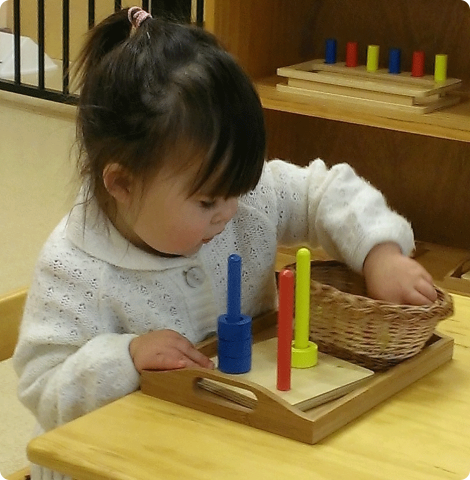2 to 3 Years
2 to 3 Years
Your child's third year is a time of critical brain development. Their continued exploration of and experience in the world enables them to build a strong sense of their own capacities. For the majority of children the major movement milestones have been achieved and they have begun to use language to communicate. Though your child will continue to refine their abiities in both of these areas, now is the time to focus upon their growing ability to do more for themselves.
Communication
- You are your child's greatest resource when it comes to language and communication. Your child will absorb your version of language, which makes you a role model! If you say, 'Please' and 'Thank you', your child will absorb this and copy.
- Naming things in your child's environment will provide them with a rich source of language.
- Reading to your child regularly will enable them to build a love of books and stories. Your child will develop some favourites which you will probably come to know by heart! You can discuss what is happening in the story as it unfolds. This helps your child build comprehension skills.
- 3 word sentences by age 3 is considered normal language development.
- Your child might start to show interest in using pencils to draw and write famiiar letters or 'sounds'. Writing requires significant fine motor control. Having opportunities to refine their fine and gross motor movements will support your child's ability to control a pencil
Movement
- Even though your child is walking, they will still need lots of opportunity to refine this skill and build up strength.
- Your child will enjoy running, jumping, hopping, climbing, pushing, pulling, balancing and carrying.
- The brains of young children are designed to enable them to learn how to perform tasks simply by watching others. Your child will be particularly interested in imitating the activites they regularly see you involved in around the home.
- There is a strong connection between movement and learning. Young children are not made to sit in a chair for long periods of time. Movement supports their developing brain.
- Current research suggests that children under 3 years old should have screen time limited to 1 hour per day.
Emotional and Social Development
- Getting enough sleep is important for your chid's healthy brain development. Some children will have stopped sleeping during the day at this point and others will not. Planning a quiet time during the day will support your child to process all the experiences they have had during the day and to wind down.
- Your child will be ready for social experiences with children they own age. This will give them the opportunity to practice their social skills.
- This is a great time to begin teaching your child about emotions. The simplest way to do this is to connect with your child when they are emotional by acknowledging their feelings verbally and non-verbally (hugs) e.g. 'You're feeling sad, aren't you?' This lets your child know that you have understood and it names the feeling for them. It is important to your child that their feelings are acknowledged and that you are there to provide comfort.
- Children at this stage of development benefit from being encouraged to tell the story about what is upsetting them. This helps them to make sense of their experience and feel more in control. Begin by acknowledging the feeling first, 'You look so sad. That really hurt, didn't it?' Then depending upon your child's language ability, you may need to tell the story initially and encourage them to join in / take over. You could dramatise it, adding humour when appropriate. Your child might need to go over their story a number of times. This can be frustrating from an adult perspective, but storytelling produces understanding, healing and integration
- It can also be helpful to let them know that although they are feeling sad now, later on they will feel better. This is the beginning of lessons around differentiating between their feelings and their sense of self, or 'I feel' and 'I am'.
Discipline
- Very young children have limited capacity for self-discipline. They need support from us to learn what is appropriate and how to regulate their behaviour.
- When 'correcting' your toddler's behaviour try to connect first and then redirect them. For example, if your child bites another child, you could connect with them first, 'You're frustrated aren't you?" Then once your child has more control and is able to listen, you could provide the key message you wish to convey and set the boundary, 'Biting hurts, Be gentle.' Then you can redirect by moving them on to something else, 'Let's go and look at the fish in the pond.'

